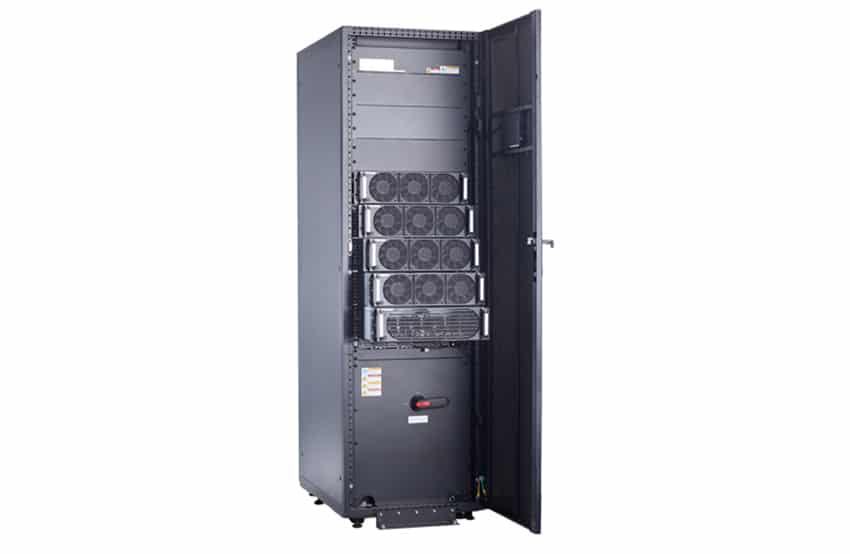
This week at Data Center World (DCW) in London, Huawei showcased its intelligent micro-module data center solution and high-efficiency modular UPS. This modular UPS has up to 97.5% efficiency when the system load is 40% of the rated load (compared to 86% efficiency of traditional UPS solutions). This high efficiency UPS has garnered much attention this year at DCW.
When one thinks of energy intensive industries they typically think of metal or cement processing. However, data centers are number five on the most energy-intensive industries using about 400 billion kWh per year. That’s a tremendous amount energy and cost. Energy conservation and emission reduction plans are on the rise around the world especially in Europe. As such DCW is focusing on energy efficiency more and more with an efficient power distribution system is at the center of the data center revolution.
As stated above, Huawei’s modular UPS are highly efficient. The modular system allows faulty modules to be detected, isolated, and swapped out quickly. With up to 160 parallel modules, Huawei's modular UPS can still run reliably, providing a power supply solution for most data centers. Being denser and more efficient than traditional UPS will also save on both costs and data center footprint.
The storing, management, and analysis of Big Data will only make data centers expand to tackle this flood of data. Organizations will have to find a way to build the data center they need while keeping costs and footprint in mind. One way to for organizations too deal with this deluge of data is the implementation of innovative technology, such as the modular UPS.
Sign up for the StorageReview newsletter

